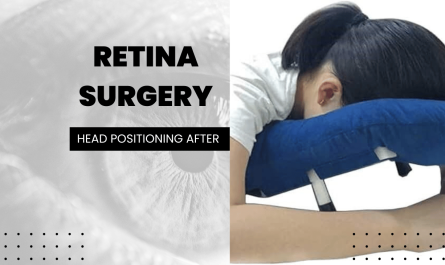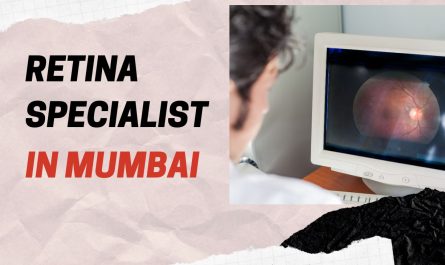Retinal Detachment Surgery During Monsoon in Mumbai
Retinal detachment is a serious eye condition that requires immediate medical attention. The retina, which is the light-sensitive tissue at the back of your eye, can become detached from its normal position, leading to potential vision loss if not treated quickly. If you are undergoing retinal detachment surgery, you may have questions about the process, especially during the monsoon season, which can complicate both the procedure and recovery.
In this blog, we will discuss what you can expect from retinal detachment surgery during the monsoon. We will also provide insights into how weather conditions can affect your healing process, the importance of timely treatment, and how Laxmi Eye Hospital can assist with your treatment and recovery.
What is Retinal Detachment?
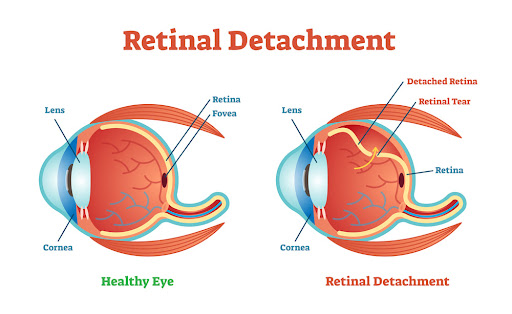
Retinal detachment occurs when the retina separates from the underlying tissue that provides it with oxygen and nutrients. This condition can lead to vision loss, and prompt surgery is often required to reattach the retina. Symptoms of retinal detachment include sudden flashes of light, floaters, or a shadow or curtain-like effect in the vision.
If you experience these symptoms, it’s crucial to seek medical care immediately. Delaying treatment can result in permanent vision damage.
How Monsoon Affects Retinal Detachment Surgery
Monsoon season in Mumbai can be a tricky time for anyone undergoing surgery, especially eye surgeries like retinal detachment. Here’s how the season may impact your surgery and recovery:
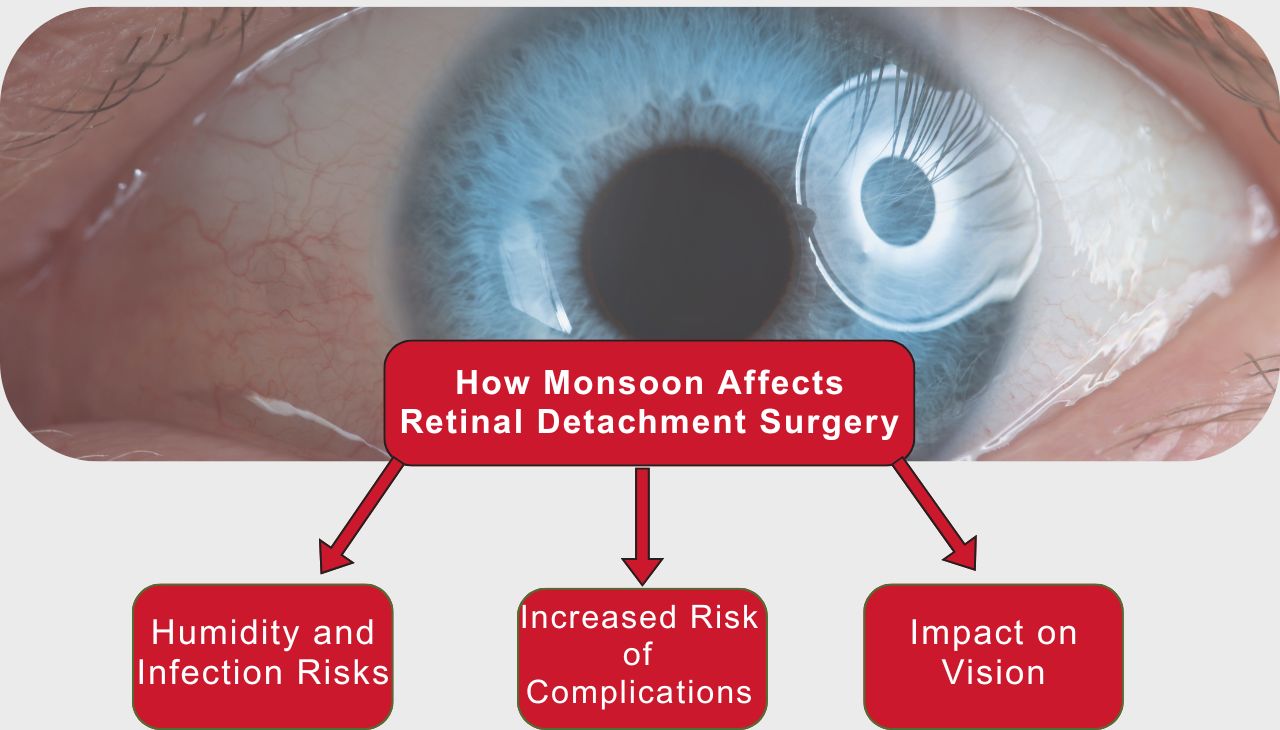
- Humidity and Infection Risks
High humidity can increase the risk of infections during the recovery period. It’s essential to follow your doctor’s instructions regarding hygiene, medications, and care. Keeping your eyes dry and clean can help reduce these risks. - Increased Risk of Complications
The rainy season can make travel difficult, especially for follow-up appointments. Post-operative care often involves frequent visits to the hospital to monitor your healing. Be sure to plan for easy and safe transportation to avoid any disruptions. - Impact on Vision
While surgery can successfully treat retinal detachment, weather conditions, including humidity and rain, may affect your vision in the initial recovery phase. It’s important to protect your eyes from sudden exposure to the rain and damp environments.
What You Can Expect from Retinal Detachment Surgery
Retinal detachment surgery aims to reattach the retina and restore normal vision. The surgery involves different techniques, such as laser therapy, cryotherapy (freezing treatment), or a vitrectomy (removal of the vitreous gel). The method used depends on the type and severity of the detachment. Here’s what to expect:
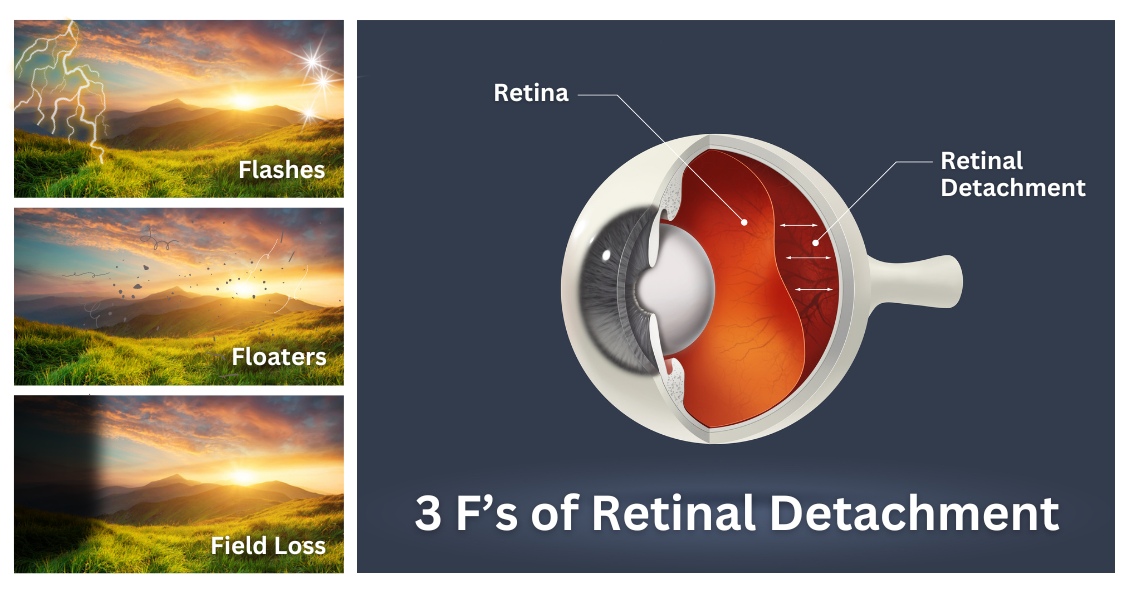
- Pre-Surgery Preparations
Before surgery, your doctor will conduct a thorough eye exam, which may include imaging scans like an OCT (Optical Coherence Tomography) to assess the condition of your retina. You may also be asked to avoid eating or drinking for a certain period before the procedure. - The Surgery Itself
The procedure is typically performed under local anesthesia, although in some cases, general anesthesia may be used. Your surgeon will carefully reattach the retina, using one of several techniques to ensure it stays in place. The surgery can take from one to several hours, depending on the complexity. - Post-Surgery Recovery
After the surgery, you will need to take certain precautions to allow your eye to heal. This includes resting your eye and limiting activities such as reading or watching TV. You will also need to use prescribed eye drops to reduce inflammation and prevent infection.
Managing Recovery During the Monsoon
Recovery from retinal detachment surgery can be challenging, especially during the monsoon. Here are some tips to ensure your recovery goes smoothly:
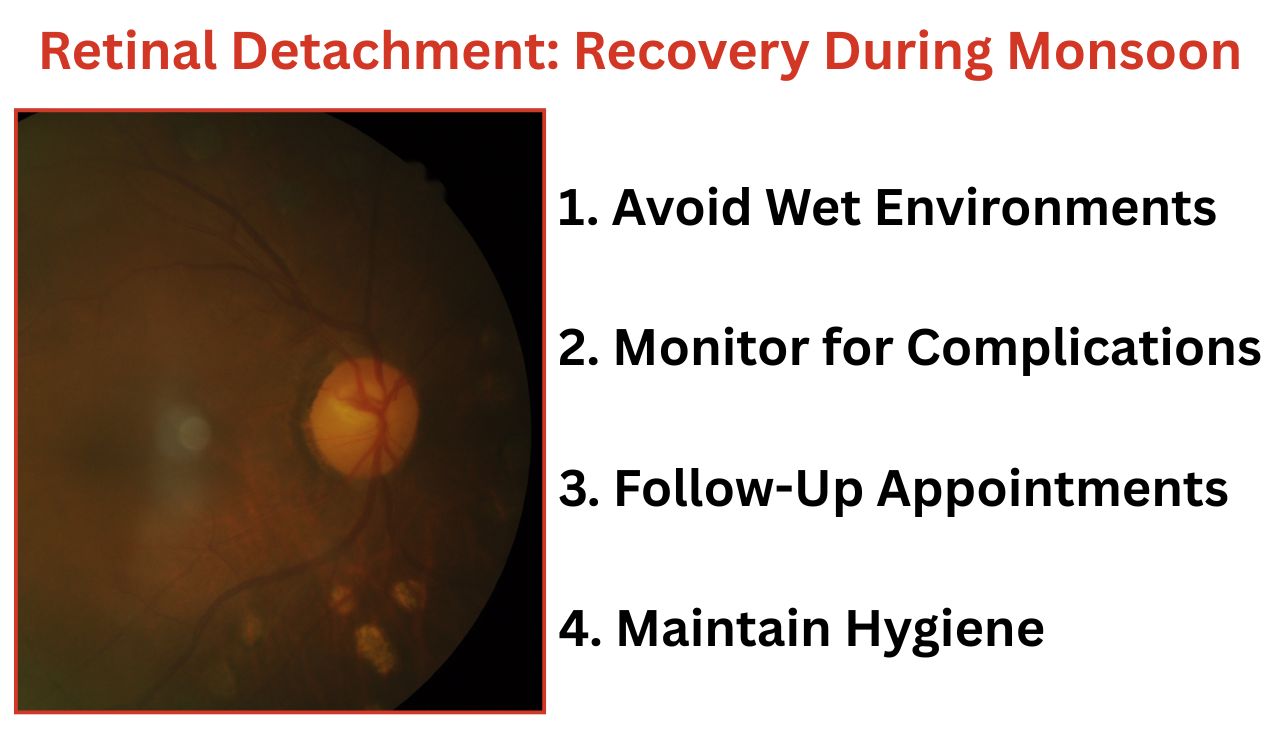
- Avoid Wet Environments: Try to stay indoors and avoid exposure to rain. Wet environments can increase the risk of infection and may interfere with the healing process.
- Monitor for Complications: Keep an eye out for any signs of complications, such as increased pain, vision changes, or discharge from the eye. Contact your doctor immediately if you experience any of these symptoms.
- Follow-Up Appointments: Regular check-ups are critical in ensuring the retina has successfully reattached and there are no complications. Schedule these appointments promptly to avoid delays.
- Maintain Hygiene: Keeping the eye clean and avoiding touching it can help prevent infection. Use clean, dry towels and avoid rubbing your eyes.
Laxmi Eye Hospital, a leading eye care provider in Mumbai with over 30 years of expertise, specializes in advanced treatments for retinal diseases, including retinal detachment. The hospital is known for its team of highly skilled ophthalmologists and state-of-the-art technology. It offers comprehensive care across specialties such as Cataract, LASIK (Bladeless LASIK, ICL, IPCL, Contoura Vision LASIK), Glaucoma, Diabetic Eye Care, Corneal Diseases, Retina Treatment, and Pediatric Ophthalmology. With its focus on delivering optimal outcomes from diagnosis to post-surgery recovery, Laxmi Eye Hospital ensures top-quality eye care across its locations in Dombivli, Kharghar, Panvel, and Kamothe, Navi Mumbai.
To schedule an appointment, you can visit the Laxmi Eye Hospital website or call the clinic directly.
FAQs
Q1: How soon can I resume normal activities after retinal detachment surgery?
You should avoid strenuous activities and keep your eye protected for several weeks. Light activities can typically be resumed after a few days, but you should follow your doctor’s advice.
Q2: Will I experience pain during the surgery?
Retinal detachment surgery is usually done under local anesthesia, so you should not feel pain. However, you may experience discomfort after the procedure, which can be managed with pain medication.
Q3: How long will it take to fully recover from retinal detachment surgery?
The full recovery time can vary, but most patients see improvement within 6 to 8 weeks. However, it may take up to several months for complete healing.
Q4: Is retinal detachment surgery covered by insurance?
Most health insurance plans cover retinal detachment surgery, but it’s advisable to check with your provider for details.
Q5: What are the risks of retinal detachment surgery?
Although rare, risks include infection, bleeding, cataract formation, or another detachment. However, these risks can be minimized with proper post-operative care.
Conclusion
Retinal detachment surgery is a critical procedure to preserve vision, and it is important to get treatment as soon as symptoms appear. While the monsoon season presents some unique challenges, following your doctor’s advice and taking extra precautions can ensure a smooth recovery process. If you suspect retinal detachment or need post-surgery care, don’t hesitate to consult with Laxmi Eye Hospital for comprehensive care. Your vision is worth protecting.



